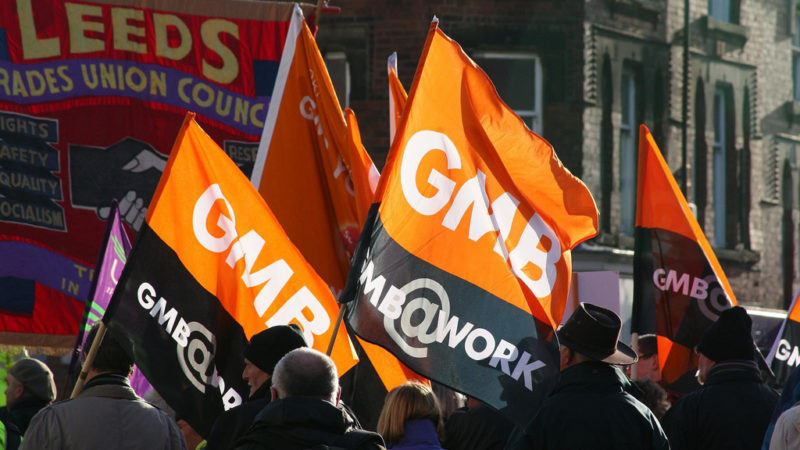
Young people have made huge sacrifices in recent years while facing cuts to youth services, stagnant wages and the tripling of tuition fees. We are also paying more for less, with income tax and student loan repayment levels at their highest for years. During the pandemic, young workers disproportionately worked in many critical sectors, from hospitals to food delivery services. Many also missed out on once-in-a-lifetime experiences, such as starting university or going travelling, as the whole country gave up freedoms to keep our communities safe.
Post-Covid, an opportunity presented itself to deliver a new deal for young people. Instead, we face a worsening housing crisis, with rents and evictions rising and the dream of homeownership increasingly distant. This has been compounded by the broader cost-of-living crisis, with weak wage growth outpaced by inflation. Such economic pressures are accompanied by an increasing resentment towards young people – accusations of entitlement, laziness and “wokeness” and some even ridiculing our growing concern about climate change. In reality, the vast majority of young people are working harder, saving more and simply fearful that their generation is being left behind.
Young workers deserve more. And it’s not just about fairness. Delivering for young people will mean a more dynamic, productive economy, stronger social contract and ultimately a rise in living standards for all. It would also tackle other societal challenges: the demographic time bomb, affected by squeezed wages and insecure housing; mental health, also exacerbated by income and housing challenges; and growing inequality (both old vs young and, increasingly, inheritors vs non-inheritors), which threatens broader societal and political stability. The solutions vary in complexity and difficulty, but all require political conviction. These include increasing housing supply, investing in the skills of the future and levelling up working standards, including a real living wage for all.
GMB London Young Workers has launched a campaign for the latter. A recent survey of our members found that 54% feel their pay is not fair or relative to similar roles and individuals performing their role. A staggering 99% are worried about the cost-of-living crisis. This reflects the reality for so many young people: the current minimum wage is £9.50 for those aged 23+, but this falls to £9.18 for 21- and 22-year-olds, £6.83 for 18- to 20-year-olds and £4.81 for under-18s and apprentices. By contrast, the independent Living Wage Foundation calculates the current living wage to be £11.95 in London and £10.90 across the rest of the UK.
In response to this injustice, we are calling for all employers to pay all employees a genuine living wage, the government to legislate for a universal, genuine living wage and, finally, for young workers to join and become active in trade unions. Kicking off our campaign – in coordination with GMB Southern members, other trade unions and London Assembly Member Unmesh Desai – we held a ‘night of action’, raising awareness among members of the public in Soho, where so many young people in the service industry are paid below the real living wage.
We have also been campaigning online and supporting our members to lobby their local MPs and councillors for their endorsement and encourage local authorities to become living wage employers and procurers. To mark TUC Young Workers Month in November, we held a drop-in session with MPs as well as an event in parliament, joined by Feryal Clark MP, Marsha de Cordova MP, Marina Ahmed AM, Anne Clarke AM, Gail Irvine of the Living Wage Foundation and Lisa Bangs of GMB.
The response from Labour MPs has been positive, and we are pleased that Labour has committed to ending this inequality in power. The last Labour government introduced one of the most successful government policies in recent history – the minimum wage. The next Labour government will build on this achievement to deliver a real living wage for all. At devolved and local levels, progress is already being made. In London, for example, Sadiq Khan has overseen the quadrupling of the number of living wage employers since 2016. More than 140,000 people work for more than 3,000 real living wage employers in the capital, which is a mandatory part of the mayor’s ‘good work standard‘.
Despite this vital progress, many young people continue to face wage inequality and, along with many other workers, lack true dignity in work. Young workers are crucial to many key sectors and services across our society. It is time to fully recognise their contribution and demand fair pay. Join our campaign here.
Young Workers #DemandFairPay 👇🏽 pic.twitter.com/5NNOvzzqYF
— GMB Young London (@GMBYoungLondon) December 9, 2022




More from LabourList
‘Council Tax shouldn’t punish those who have the least or those we owe the most’
Two-thirds of Labour members say government has made too many policy U-turns, poll reveals
‘Two states, one future: five steps on the path to peace for Israelis and Palestinians’